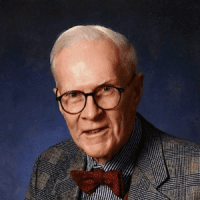January and early February are clean-up time at the Association’s headquarters. The clean-up consists in carrying out the decisions of the meetings of the Council and in other implementing and bill-paying activities in the wake of the AHA’s annual meeting in Cincinnati December 27–30. The meeting was a great success. Our first return to Cincinnati since 1916 produced a registration of 3284, the third largest turn-out in the last decade. Attendees seemed pleased with the program’s heavy stress on comparative history. Satisfaction was also expressed with several procedural improvements in the Job Register operation. Cincinnati’s hospitality in its bicentennial year more than compensated for 1888, when it reneged on an invitation for that year’s AHA meeting because of the city’s centennial celebrations!
At the Council meeting on December 27 several actions by the executive committee over the summer were approved, an AHA contribution of $3,000 to the work of the History Teaching Alliance was authorized, as was a proposal for a joint membership promotion with the American Political Science Association, by which each organization would serve as agent for the other for members who wished to obtain associate memberships in the other.
The Council decided to ask the Professional Division to design a membership committee and recruiting plan to be submitted to the next Council meeting, and it endorsed an American Council of Learned Societies’ plan to set up a free subscription program for university libraries in the Third World. The Association will undertake to establish twenty-five such subscriptions initially. Interest was also expressed in a possible program to arrange donations of books by members to help overcome the desperate shortages faced by these institutions.
The Nominating Committee proposed to the Council that its future chairs be empowered to ask the headquarters to contract for the machine counting of ballots. After a careful examination of the AHA’s constitution and bylaws, the Council decided that such an option could indeed be available to the Nominating Committee’s chair without in any way infringing the letter or the spirit of our governing document. Just before recessing until its December 30th meeting, the Council expressed some concern at the legislatively mandated reduction in the number of AHA and OAH representatives on the National Historical Publications and Records Commission. It directed the headquarters staff to communicate to the Archivist of the United States Don Wilson its concern at the resulting change in the balance between users and preserver-editors on the Commission and its hope that a conscious effort will be made to keep in mind the need for full consideration of user issues.
In its meeting on the morning of December 30, the Council welcomed the assumption of the chair by our new President, Louis Harlan. President Harlan gave a brief summary of the priorities he hoped the Council would bear in mind during the coming year, particularly the careful implementation of the program of the ad hoc committee on long-range goals, the deepening of the AHA’s long commitment to teaching, the intensification of membership recruitment, and closer relations with sister and affiliated organizations.
The Council appointed Ronald Walters, The Johns Hopkins University, to be Program Committee Chair for 1990, and requested Peter O. Pierson, University of Santa Clara, to serve as chair of the 1989 Local Arrangements Committee for the AHA’S next annual meeting December 27–30 in San Francisco.
The Council also discussed in depth the results of the recent survey of members regarding the present dates for annual meetings. (see article on p. 3)
During the course of the Cincinnati annual meeting several other important Association activities took place on the margin of regular program events. A meeting with representatives of affiliated organizations was held on December 29, chaired by Louis Harlan as his last president-elect action. Useful suggestions were made for improving Perspectives reporting on affiliates’ meetings and plans. Strong interest was expressed in developing a comprehensive index in the annual meeting program, which would also cover affiliates’ program participants. The future AHA program committees were asked to develop an affirmative action program for extending special consideration to those affiliates that have not recently had joint sessions with the AHA in our official program. Affiliated organizations asked particularly to be apprised as soon as possible of future meeting sites of the AHA as the earliest moment after contractual decisions are made.
Outgoing President Akira Iriye convened a meeting early on December 30 of the Ad Hoc Joint Committee with the OAH and the American Studies Association on international scholarly exchanges. A number of ideas for promoting the exchanges of scholars between the U.S. and foreign countries were explored, including the possible development of long summer institutes in American studies to be sponsored by all three associations. The need for book donation programs in many areas was noted, as was the need for coordination with USIA and CIES. Developing a database of foreign scholars specializing in U.S. history was decided on, and plans were drawn up for a further meeting on the margin of the OAH annual meeting in St. Louis this April.
The AHA’s own Research and Teaching Divisions held a meeting to consider what role the Association might take regarding publications for history teachers. Joining members of the two divisions for this discussion were representatives of the OAH, the Society for History Education, the Committee on History in the Classroom, the World History Association, and the Organization of History Teachers and the co-chairs of the Ad Hoc Committee on the Future of the AHA. The group discussed at length teacher needs and existing publications and proposed several possible initiatives for the AHA, noting especially the need for a clearinghouse on new developments in history teaching and for textbook reviews. The two divisions will consider the group’s recommendations at their respective spring meetings.

